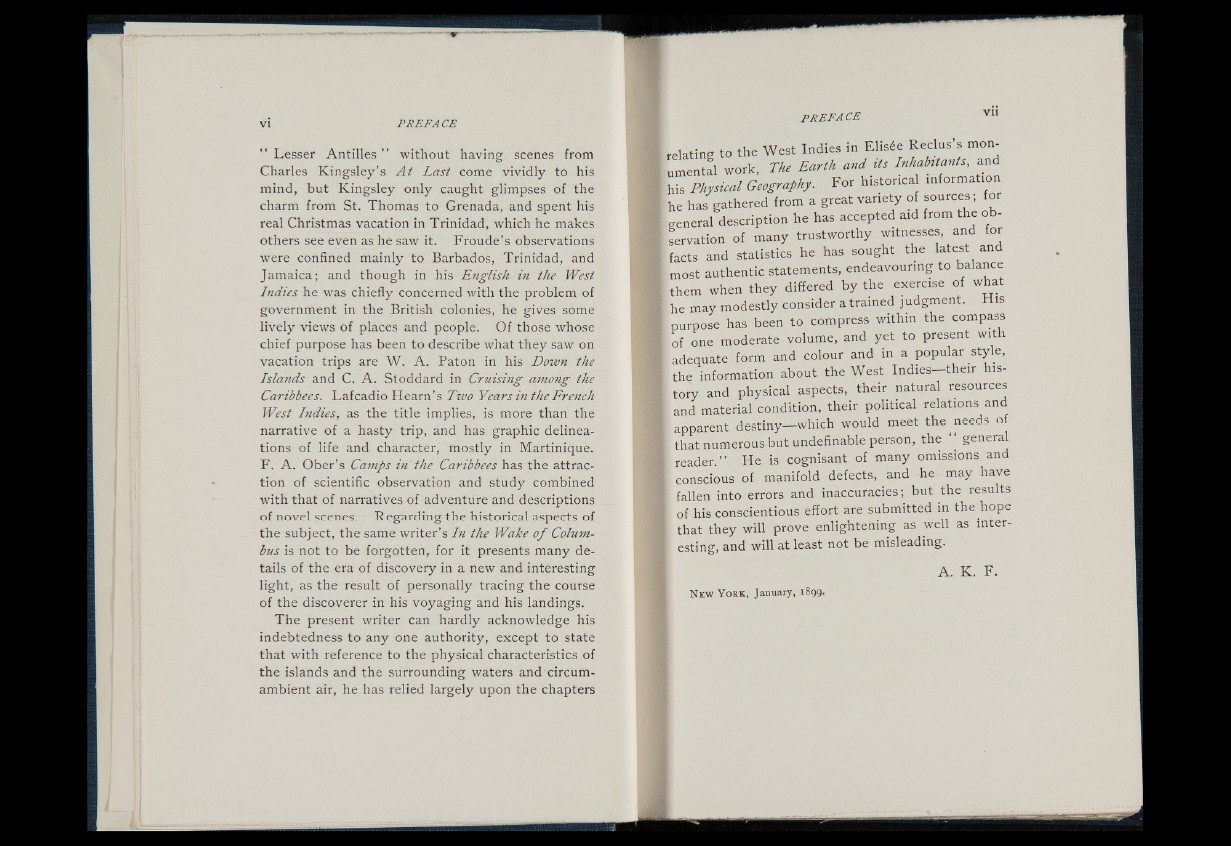
vi PRE F A CE
Lesser Antilles ” without having scenes from
Charles K in g s le y ’s A t Last come vividly to his
mind, but Kingsley only caught glimpses of the
charm from St. Thomas to Grenada, and spent his
real Christmas vacation in Trinidad, which he makes
others see even as he saw it. Froude’s observations
were confined mainly to Barbados, Trinidad, and
Jamaica; and though in his English in the West
Indies he was chiefly concerned with the problem of
government in the British colonies, he gives some
lively views of places and people. Of those whose
chief purpose has been to describe what they saw on
vacation trips are W. A . Paton in his Down the
Islands and C. A . Stoddard in Cruising among the
Caribbees. Lafcadio Hearn’s Two Years in the French
West Indies, as the title implies, is more than the
narrative of a hasty trip, and has graphic delineations
of life and character, mostly in Martinique.
F. A . Ober’s Camps in the Caribbees has the attraction
of scientific observation and study combined
with that of narratives of adventure and descriptions
of novel scenes. Regarding the historical aspects of
the subject, the same writer’s In the Wake o f Columbus
is not to be forgotten, for it presents many details
of the era of discovery in a new and interesting
light, as the result of personally tracing the course
of the discoverer in his voyaging and his landings.
T h e present writer can hardly acknowledge his
indebtedness to any one authority, except to state
that with reference to the physical characteristics of
the islands and the surrounding waters and circumambient
air, he has relied largely upon the chapters
PR E F A CE
relating to the West Indies in Elisée Reclus s monumental
work, The Earth and its Inhabitants, and
his Physical Geography. For historical information
he has gathered from a great variety of sources; for
general description he has accepted aid from the observation
of many trustworthy witnesses, and for
facts and statistics he has sought the latest and
most authentic statements, endeavouring to balance
I them when they differed by the exercise of what
he may modestly consider a trained judgment. His
i purpose has been to compress within the compass
of one moderate volume, and y et to present with
adequate form and colour and in a popular style,
the information about the West Indies— their his-
i tory and physical aspects, their natural resources
and material condition, their political relations and
[ apparent destiny— which would meet the needs of
t h a t numerous but undefinable person, the “ general
I reader.” He is cognisant of many omissions and
I conscious of manifold defects, and he may have
I fallen into errors and inaccuracies ; but the results
I of his conscientious effort are submitted in the hope
I that they will prove enlightening as well as inter-
I esting, and will at least not be misleading.
N ew Y o r k , January, 1899.
A . K . F.